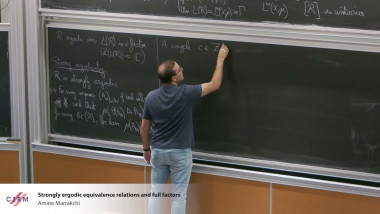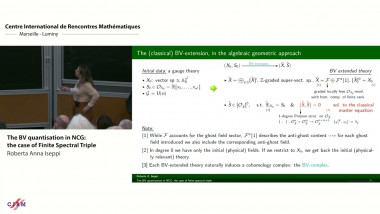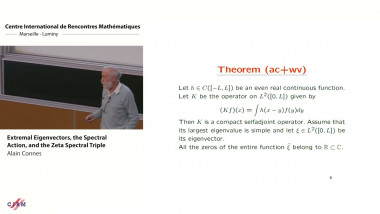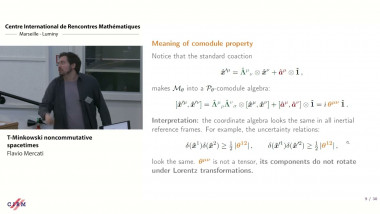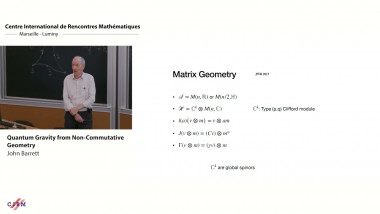Apparaît dans la collection : 2025 - T1 - WS2 - Tempered representations and K-theory
I will outline a puzzle relating to group actions in noncommutative geometry and its resolution by way of conformal geometry. I will discuss the discrepancy between Kasparov's bounded picture of KK-theory and the unbounded picture of KK-theory, including the spectral triples so important to noncommutative geometry, particularly with respect to group equivariance. The discrepancy occurs already when considering group actions on the 'patient zero' of noncommutative geometry, the Dirac spectral triple of a Riemannian manifold. In the bounded picture, conformal group actions are allowed but, in the unbounded picture, only isometries are naturally permitted. This extra freedom in the bounded picture is quite consequential; for instance for Kasparov's construction of the $\gamma$-element for the Lorentz groups. I will discuss a general framework solving this problem, making use of a new multiplicative perturbation theory for abstract differential operators. I will also briefly explain how the same technology can be used to analyse the $\mathrm{SL}_q(2)$-equivariance of the Podle\'s quantum sphere and to give new meaning to examples of twisted spectral triples in the literature. This is joint work with Adam Rennie and appears in a recent preprint.
